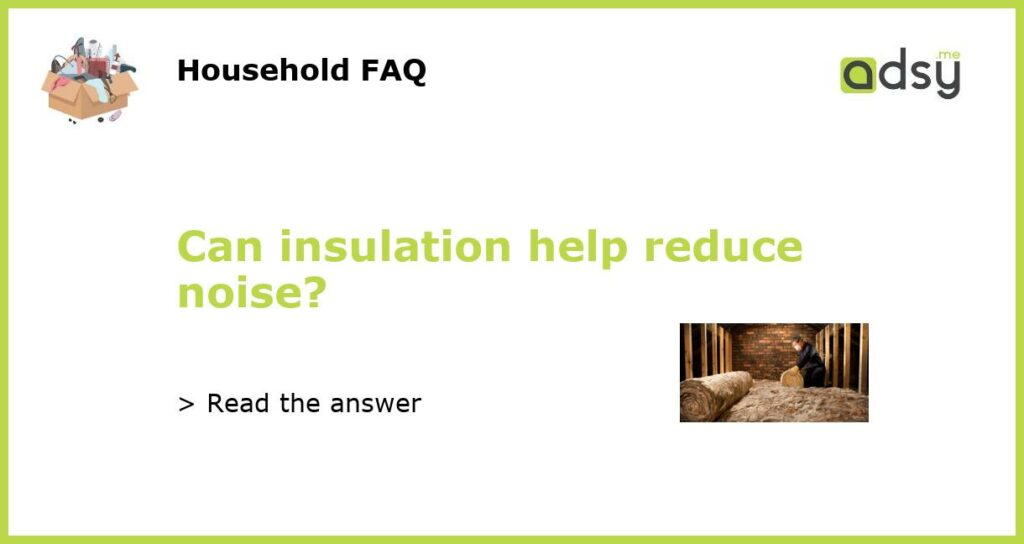Yes, insulating your home can help reduce noise
If you live in a noisy neighborhood or have noisy neighbors, you may be wondering if insulation can help reduce the amount of noise that enters your home. The answer is yes, insulation can indeed help to reduce noise. Insulation acts as a barrier between the inside and outside of your home, helping to dampen sound waves and prevent them from entering your living space. In this article, we will explore how insulation works to reduce noise and the different types of insulation that are most effective in this regard.
How does insulation reduce noise?
Insulation works to reduce noise by absorbing and dissipating sound energy. When sound waves hit a surface, they can be reflected, transmitted, or absorbed. Insulation helps to absorb sound waves, preventing them from bouncing back into your living space and further increasing the noise level. The materials used in insulation, such as fiberglass or cellulose, have a porous structure that helps to trap and dissipate sound energy. Additionally, insulation also helps to reduce vibration, which can contribute to noise transmission.
The best types of insulation for noise reduction
While most types of insulation will offer some degree of noise reduction, certain types are more effective than others. Here are some of the best types of insulation for reducing noise:
- Fiberglass insulation: This is one of the most common types of insulation and also offers good noise reduction properties. Fiberglass insulation consists of glass fibers that are woven or blown into place, providing an effective barrier against noise.
- Cellulose insulation: Made from recycled paper products, cellulose insulation is another effective option for reducing noise. It forms a dense barrier that can effectively absorb sound waves.
- Spray foam insulation: While primarily known for its thermal insulation properties, spray foam insulation can also help to reduce noise. Its expanding foam structure creates an airtight seal that can block out noise.
Additional ways to reduce noise in your home
While insulation is an effective way to reduce noise, there are also other measures you can take to further soundproof your home:
- Seal gaps and cracks: By sealing gaps and cracks in your walls, floors, and windows, you can prevent noise from leaking in or out of your home.
- Use sound-absorbing materials: Certain materials, such as heavy curtains, acoustic panels, or rugs, can help to absorb sound and reduce echoes in your home.
- Install soundproof windows or doors: If noise is a significant issue in your home, you may consider installing soundproof windows or doors. These specialized products are designed to block out noise and can make a noticeable difference.
In conclusion
If you’re looking to reduce noise in your home, insulation can be a highly effective solution. By absorbing and dissipating sound energy, insulation helps to create a quieter and more comfortable living environment. Choose insulation materials that offer good noise reduction properties, such as fiberglass, cellulose, or spray foam. Additionally, consider implementing other soundproofing measures, such as sealing gaps, using sound-absorbing materials, or installing soundproof windows or doors. By combining these strategies, you can significantly reduce noise levels in your home and enjoy a quieter living space.

